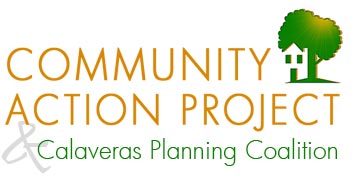project focused on sustainable land use planning.
Find out more about us >>
Commercial rafting gets mostly a thumbs up
By Joel Metzger | Posted: Friday, August 3, 2012 10:14 am
Few concerns were raised at a public meeting held in Amador County Tuesday regarding a three-year pilot study of commercial recreation on the Mokelumne River.
The program would include opportunities for commercial rafting, kayaking lessons and guided fishing excursions.
If there are no major public objections to the study, it will likely begin early next year, allowing a limited number of commercial rafting trips and kayaking classes to take place on the river every other weekend.
The public may submit written comments about the program until Wednesday, Aug. 15.
District 2 Supervisor Steve Wilensky said the program was a monumental collaboration between the Bureau of Land Management, Pacific Gas and Electric Co. and the East Bay Municipal Utility District.
“This really is the product of more than 15 years of work,” Wilensky said. “It is special when PG&E, EBMUD and BLM actually work together to come up with something of this nature. There was real leadership in all their agencies to make this happen.”
Foothill Conservancy Board Vice President Pete Bell of Volcano said there were about 50 people in attendance, and Wilensky estimated more than 80 percent were from Calaveras County.
“The vast majority of what was said was in favor of the project,” Bell said. “It’s an opportunity to get people out on the river who otherwise never would.”
Wilensky said many county residents and organizations showed up to support the study, including the Calaveras Visitors Bureau, Calaveras County Chamber of Commerce, District 3 Supervisor Merita Callaway, Planning Director Rebecca Willis and supervisor candidates Chris Wright and Cliff Edson.
“I think it’s a very good thing for both Calaveras, Amador and the river,” Edson said, adding he believes commercial guides will be good stewards of the river and the pilot program will help boost the economy.
Wilensky echoed those sentiments, banking on commercial recreation presenting “tremendous” economic and educational opportunities for both counties.
“This will become a renowned training ground,” he said. “It really is the best place in California to learn how to kayak. It’s a forgiving river with nice pools below each rapid. The kayak classes will be limited to one instructor per no more than five students.”
MaryAnne Garamendi, a teacher at Mountain Oaks School, and Jim Casey, a teacher at West Point Elementary School, spoke in favor of opening the river to educational trips.
Amador County Supervisors Brian Oneto and John Plasse each raised concerns about impacts commercial activities may have on area roads. They feel it could increase traffic on roads that are already in bad condition and suggested there should be some compensation to local government.
“In rebuttal, I suggested Calaveras and Amador could well use the revenues that come in when people shop in our stores, stay in our hotels, eat meals and buy gas,” Wilensky said. “That will come back to the counties and more than make up for whatever minor impacts it would have to roads.”
According to Bell, rafting companies will have to arrange for parking away from the river and guests will be transported to the put-in spots using vans.
Wilensky said another concern raised was the possibility of people trashing the riparian area and potentially starting wildfires.
“If you look at the history of OARS 40-years plus with thousands of trips, not one single fire is attributed to an OARS venture anywhere in or out of the country,” Wilensky said, adding other rafting companies have similar records. “OARS and others police every stopping area and they even pick up crumbs so there won’t be any animal that becomes dependent on crumbs for food. Places are left as if no one had ever visited. These people are committed beyond all others.”
In a phone conversation Thursday, Plasse said he did not believe BLM had properly communicated with Amador County officials, as is required by its own policy.
“I and another elected supervisor expressed multiple concerns during the meeting,” Plasse said. “Any concerns or comments that were in any way counter to being fully supportive of the effort by BLM were marginalized, to say the least.”
Plasse reiterated concerns about the impacts on county roadways, and said it was unfair BLM could allow commercial rafting when any other business would have to go through a lengthy approval and permitting process.
Despite his concerns, Plasse acknowledge commercial activities on the Mokelumne would likely be a good thing for the Amador economy.
Wilensky and Callaway have prepared an agenda item to be discussed at the Calaveras County Board of Supervisors meeting Aug. 14.
“We’ll be discussing it and (potentially) offering a motion of support of the pilot project,” Wilensky said.
Written comments will be accepted through Aug. 15 and can be sent to the BLM Mother Lode Field Office, attention Jeff Horn, 5152 El Dorado Hills, CA 95762.
For more information, call Horn at 916-941-3130. To read the full BLM feasibility study, visit calaverasenterprise.com.

